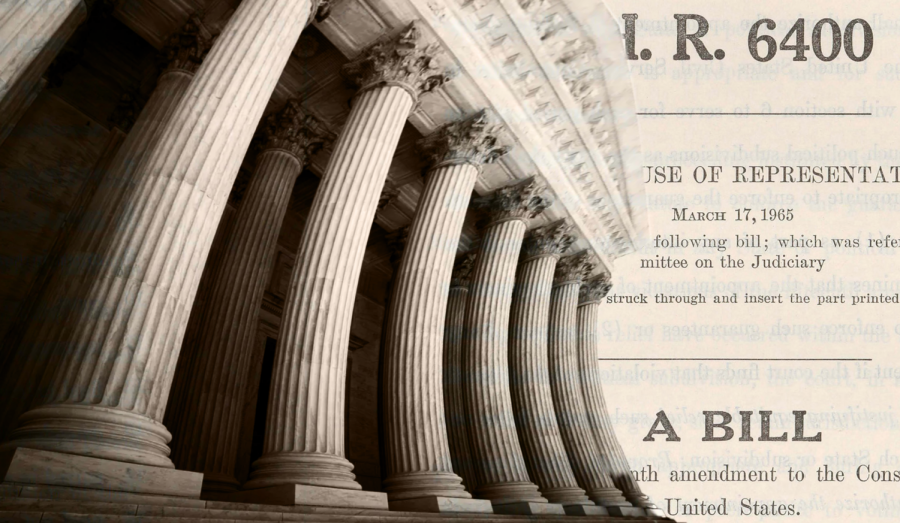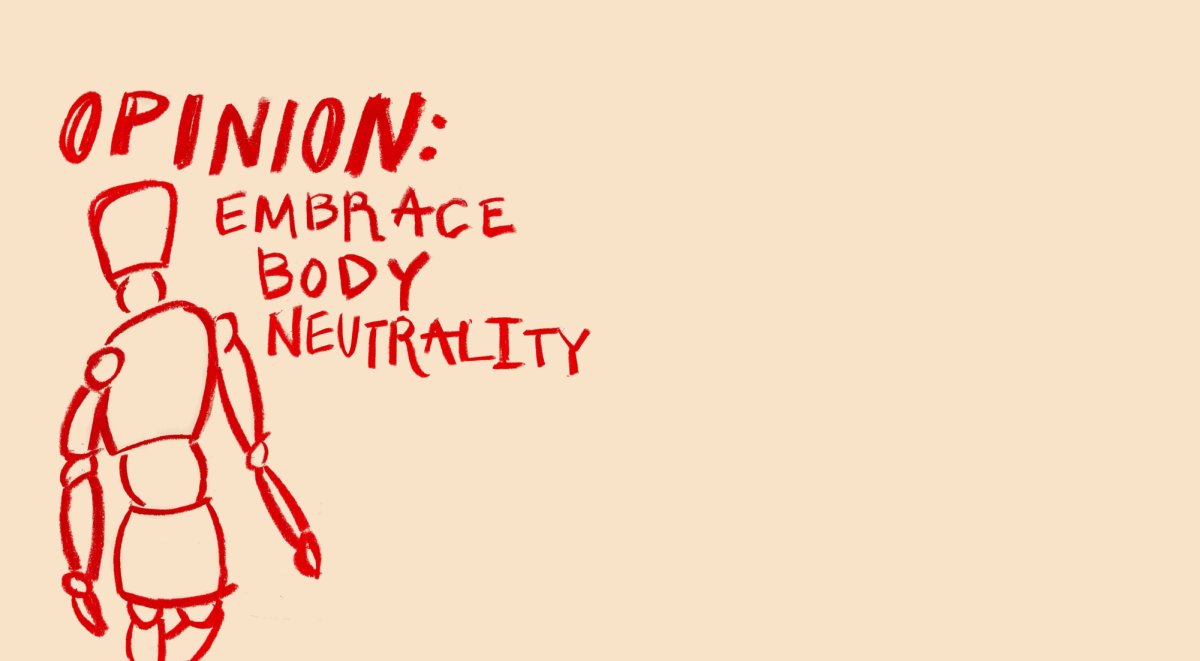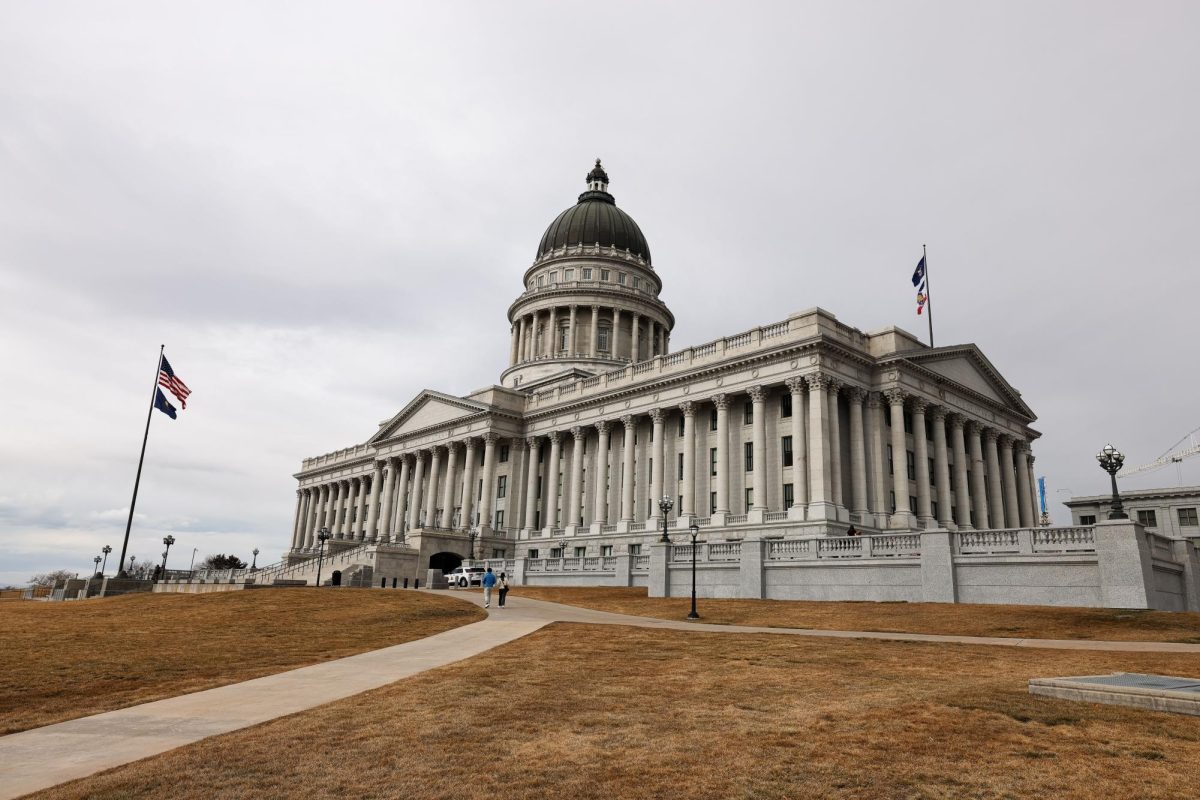Kincart: Another Blow to the Voting Rights Act Should Spark Worry
(Graphic by Cyan Larson | The Daily Utah Chronicle)
July 21, 2021
If you know me, you know that I love Election Day. I wanted nothing more than to register to vote on my 18th birthday. I keep my “I Voted” sticker from my first election in my journal.
That said, the Supreme Court’s decision in Brnovich v. Democratic National Committee on July 1 devastated me. The court’s three liberal members dissented in a 6-3 decision. This case was the first time that the court considered how an important piece of the Voting Rights Act of 1965 applies to restrictions impacting people of color.
The Supreme Court’s decision in Brnovich v. Democratic National Committee shows blatant disregard for racial discrimination, and will have implications nationally and state-wide.
Section 2 of the Voting Rights Act serves as an “enforcement mechanism for the 15th Amendment’s guarantee that the right to vote cannot be abridged ‘on account of race, color, or previous condition of servitude.’” Even if the intent to discriminate isn’t proven, Section 2 holds that a voting process resulting in the “abridgement” of voting rights based on the aforementioned factors is illegal. Redistricting cases mostly utilize Section 2 to determine whether voting maps weaken the power of minority groups.
Brnovich v. Democratic National Committee focused on two Arizona laws. One law banned the collection of absentee ballots by anyone other than a relative or caregiver. The other requires election officials to throw out ballots cast in the incorrect precinct. This decision doesn’t announce standards for lower courts to apply in voting restriction cases. Instead, it lays out five guideposts.
In the majority opinion, Justice Samuel A. Alito Jr. wrote that “mere inconvenience cannot be enough.” Thus, the restriction posed in the law must be considerable. Second, the restrictions should have a long or widespread use in the United States. Third, the size and scope of the law’s impact on racial and ethnic groups needs to be weighed. Fourth and fifth, all ways to vote must be considered, as well as the state’s reason for the law.
This decision affects the entire country. It asks us to weigh the claims of voters over the interests of states, with one party always being disadvantaged. It also asks which voting burdens are acceptable under the law’s commitment to equal opportunity.
Instead of asking how to best protect voters of color from the state, this decision signals that voter fraud threatens American democracy more than racial discrimination. Because of this implication, the Supreme Court seems to overlook racial discrimination.
We must recognize the forms in which racial discrimination manifests in voting because of its clear history in the U.S. The Brnovich v. Democratic National Committee decision will impact the Department of Justice’s suit against Georgia, which argues that the state’s new voting law intends to restrict ballot access to Black voters.
More specifically, this Supreme Court ruling could directly affect Utah — this is not abstract and irrelevant. In 2016, the national American Civil Liberties Union (ACLU) and ACLU of Utah filed a suit against San Juan County, known as Navajo Nation Human Rights Commission v. San Juan County et al.
This suit resulted from the county’s 2014 decision to close all polling places on the Navajo Nation falling within the county and to use a mail-only voting system. The Navajo Nation relies heavily on in-person voting because many residents require language assistance for non-English readers.
This specific case reached a positive settlement agreement and the Court keeps jurisdiction over the case in order to enforce the agreement going forward. But, the outcome of this case could perhaps be different given the decision in Brnovich v. Democratic National Committee.
Voter suppression laws, like those focused on in Navajo Nation Human Rights Commission v. San Juan County et al, don’t only occur in states like Arizona and Georgia. They exist in Utah and this ruling affects them.
We shouldn’t ignore the implications of Brnovich v. Democratic National Committee. We must recognize how this decision hurts racial, ethnic and linguistic minorities along with the message it sends about the values of our electoral system. This decision greatly disappointed me, and it hurts me to see voting, arguably one of my favorite actions, grow restricted.
But this decision affects everyone — not just me. As the Voting Rights Act continues to lose power, it grows more difficult to vote. This puts our ability to maintain a democracy on the line — and that’s a scary thought.














J. Jolley • Aug 12, 2021 at 1:26 pm
The problem with these laws being upheld is that they assert state’s interests above that of individual voters. They are being applied in states Republicans lost, and relate to strategies Democratic voters rely on. No one is assuming that People of Color cannot cast a ballot, or get an ID. The problem lies in the fact that the Voting Rights Act was to protect against laws that implicitly or explicitly disenfranchise voters of any group. Stricter voting laws increase the burden of participating in voting. Think about it, if you have to take off work to vote, pay for more paper work to get your ID, and drive long distances to access the polls, you are more likely to chose not to engage in the voting process. Research has shown that this downturn in engagement is most notable in communities of Color, though it also affects white populations as well. Arizona’s laws and others are in response to a supposed “voting fraud” scandal with no evidence admissible in court. It is obvious to me that those passing these laws do not consider the impact on minority groups as part of “preserving the integrity of the vote”. I appreciate those who realize this and fight to preserve access to the vote for all, especially those historically disenfranchized.
John Hedberg • Jul 28, 2021 at 9:08 pm
“Democrats have claimed that voter ID laws discriminate against black voters and other minorities, but voters reject that claim by a nearly 2-to-1 margin. Sixty percent (60%) say laws requiring photo identification at the polls don’t discriminate, while 31% say voter ID laws do discriminate. Ten percent said they are not sure.
A majority of Democrats (51%) say voter ID laws are discriminatory, while 79% of Republicans and 67% of unaffiliated voters say requiring identification at the polls is not discriminatory.
Majorities of whites (74%), blacks (69%) and other minorities (82%) say voters should be required to show photo identification before being allowed to vote. Voters under 40 support voter ID laws more than do older voters.”
https://www.rasmussenreports.com/public_content/lifestyle/general_lifestyle/march_2021/75_support_voter_id_laws
The reason only family members and/or caregivers are allowed to collect ballots of people in adverse health situations is that family members and/or caregivers tend to care whether the person’s wishes are being respected, whereas a political operative is more likely to suppress voters they disagree with, change the votes of those they can successfully pressure, or even throw away ballots of those who don’t favor their chosen election outcome. This kind of fraud has not been rare in political history in any democratic nation, which is the reason the practice is curtailed. In elections where the difference of a few thousand votes can change the White House or who runs a chamber in Congress, protecting the integrity of the voting process, while allowing maximum flexibility for voters to cast their own ballots in a multitude of other ways, insures that voters can have confidence that every citizen’s vote counted once, and every vote was counted, so equality is maintained.
The racist bias which implies that people of different genetics or cultural backgrounds aren’t smart enough or capable enough to cast a vote for themselves is cruel and discriminatory, like saying they’re incapable of functioning as equal adults despite the fact that they do so, just like you do, every day in a myriad thousand different ways, from getting a driver’s license, to using that license to pick up beer or a prescription, to knowing how to read a food label or count change from a cash register, or acquiring a social security number they use to obtain a job and excel at it. I come from a family of immigrants, and people of different languages and cultures have somehow been savvy enough to figure this stuff out for themselves successfully for hundreds of years, and to pretend or imply that these “others” are too stupid or incapable to do what the newest immigrant does daily is genuine racist bigotry.
Shouldn’t you re-check your sad assumptions about the abilities of other people? My great-grandfather was a sailor, a simple rope-maker who jumped ship in Boston Harbor and had zero problem figuring out the new language and the needed ways to function and thrive in a brand new culture. His son used public education to get into med school, even though the father never rose beyond simple mechanical day work as a profession. They were pooooooor! They managed, and most poor people do so fairly well without the dubious help of anyone’s “loving” condescensions. lol
With Love,
All the Best,
John Hedberg